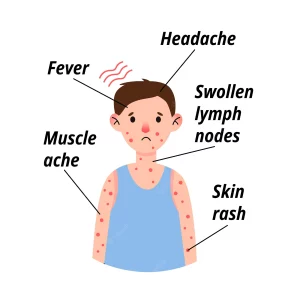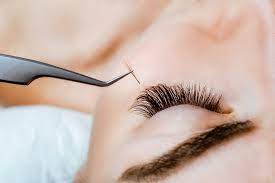If you’re like most people, you know that allergies can be miserable, especially during the springtime. In fact, according to the American College of Allergy, Asthma and Immunology (ACAAI), up to 40 percent of Americans experience some form of allergy in a given year. While some people are able to manage their allergies with over-the-counter medication, others need to take more drastic steps.
One such step is to see a doctor who can evaluate your symptoms and prescribe the best course of action. However, if you can’t afford to see a doctor or don’t have one nearby, there are other things you can do to manage your allergies. One such thing is to increase your intake of vitamin D.
Vitamin D deficiency is common in people who suffer from seasonal allergies, and it’s one of the reasons why they tend to experience more symptoms. By taking supplements or increasing your exposure to sunlight, you can help regulate your immune system and reduce the severity of your symptoms.

What are the Symptoms of Seasonal Allergies?
In addition to sneezing, itchy eyes and a stuffy nose, many people experience swollen lymph nodes during the allergy season. These symptoms can be quite severe, and you might need to see a doctor if they persist for more than two weeks.
What Causes Seasonal Allergies?
There is no one definitive answer to this question, as allergies are caused by a combination of environmental and genetic factors. However, some commonly cited causes of seasonal allergies include:
-Pollens released by trees, weeds and grasses in early spring
-Dust mites that thrive during warm weather
-Allergen exposure in early childhood
What Causes Seasonal Allergies?
When the weather starts to change, many people experience seasonal allergies. The allergens that cause these allergies can come from plants, animals, or even dust mites. In some cases, the person may have a specific allergy to a certain type of plant or animal. Others may have an allergy to pollen, which is the main allergen in flowers.
The symptoms of seasonal allergies can vary depending on the person, but they tend to include a runny nose and itchy eyes. In some cases, people may also experience sneezing spells or congestion.
In some cases, seasonal allergies can lead to swollen lymph nodes. Swollen lymph nodes are usually located in the neck, underarms, and groin areas. They can be tender to the touch and may feel like they are filled with fluid. Swelling due to seasonal allergies can usually go away on its own within a few weeks. However, if it is severe or lasts for more than two months, it may be worth getting checked out by a doctor.
How to Treat Seasonal Allergies Naturally
If you have seasonal allergies, you may notice swollen lymph nodes. Here are some tips on how to treat them naturally.
1) Try herbs. Some herbs can help to lower inflammation and improve your symptoms. For example, chamomile tea or lavender oil can help to calm your symptoms and soothe your skin. Try a variety of different herbs to see which one helps you the most.
2) Eat foods that are anti-inflammatory. Foods like avocado, ginger, and turmeric can help to reduce inflammation in the body. These foods are also good for overall health and can help with other conditions such as arthritis.
3) Take supplements. If you don’t have any relief from eating foods or taking supplements, talk to your doctor about other treatments such as allergy shots or tablets.
What are the causes of seasonal allergies?
A seasonal allergy is an immune response to allergens that is more pronounced during a certain time of year. The most common allergens are pollen, dust mites, cats, and dogs.
The triggers for seasonal allergies can be environmental or lifestyle changes, such as changing seasons or moving to a new location. Some people are more susceptible to developing allergies than others, and there is no one definitive cause. However, some common culprits include:
– Exposure to pollens in the air
– Living in a climate with high humidity levels
– Shifting from a cold to warm environment too quickly
– Having a cat or dog in the home
How can you prevent seasonal allergies?
If you suffer from seasonal allergies, there are a few things you can do to help prevent your symptoms from getting worse. Firstly, try to avoid exposure to triggers such as pollen and pet dander as much as possible. If you have to be around these things, try to keep your exposure short and avoid inhaling their pollen or dander particles. Secondly, make sure you take allergy pills regularly and drink plenty of fluids to avoid dehydration. Finally, get rid of any mould and mildew in your home by using a mold-proofing spray and cleaning products that are effective against these types of organisms.
Symptoms of seasonal allergies
Most people know that allergies can cause a runny nose and itchy eyes in the fall and winter, but did you know that seasonal allergies can also cause swollen lymph nodes? Swollen lymph nodes are a common symptom of seasonal allergies, and they can occur anywhere on the body, including in the neck, armpits, and groin.
Swollen lymph nodes often aren’t painful, but they may be tender to the touch. They may also be red, purple, or brown in color. If you have seasonal allergies and your swollen lymph nodes are causing you major pain or if they’re large enough to be seen under a microscope, see your doctor for further evaluation.
If you have seasonal allergies, it’s important to keep track of your symptoms so you can identify when your symptoms are getting worse. And remember: If you experience any severe symptoms such as chest pain or shortness of breath, see your doctor right away.
What to do if you have a seasonal allergy attack
If you are experiencing a seasonal allergy attack, there are some things you can do to help lessen the symptoms. If you are having an allergic reaction to pollen, you can try taking over-the-counter antihistamines such as diphenhydramine (Benadryl) or hydroxyzine (Loratadine). If your symptoms are due to tree pollen, you can take a decongestant such as pseudoephedrine (Napsyl) or phenylephrine (Ephedrine). You should also drink plenty of fluids and avoid strenuous activity if your symptoms are severe.
How to treat seasonal allergies with medication
If your symptoms are severe, you may need medication to treat your seasonal allergies. The most common form of medication is a decongestant such as Allegra or Sudafed. These medications work by opening up your airways and relieving the pressure on your eyes, nose, and throat. You can also take over-the-counter antihistamines like Benadryl or Zyrtec. If you’ve had an allergic reaction in the past, it’s important to talk to your doctor about the best way to treat your seasonal allergies.
How to treat seasonal allergies with natural remedies
If you have seasonal allergies, your swollen lymph nodes may be a symptom. Here are some natural remedies to help treat your symptoms:
1. Get plenty of rest. When you’re not feeling well, your body is working harder than usual to fight off the allergens. So try to get a good night’s sleep and rest as much as you can.
2. Drink plenty of fluids. When your body is dehydrated, it has a harder time fighting off allergens. Drink lots of water, especially in the morning when your allergies are at their worst.
3. Take ibuprofen or other pain relievers as needed. If your symptoms are really bad, take ibuprofen or other pain relievers as needed to help relieve your symptoms. However, be sure to talk to your doctor before taking ibuprofen or other medications if you have any health conditions.
4. Use an air purifier. If you’re living in a high pollen area, using an air purifier may help reduce the amount of allergens in your home. Open windows during peak pollen times and use an air purifier at night if necessary.
What are swollen lymph nodes?
Swollen lymph nodes are a common symptom of seasonal allergies. They may be seen in people of all ages, but are more common in adults. Swollen lymph nodes may occur at any time of the year, but are most commonly found during the fall and winter seasons.
Symptoms of seasonal allergies can include watery eyes, sneezing, congestion, and a itchy nose or throat. Swollen lymph nodes are often one of the first symptoms to appear. They may feel firm and slightly tender to the touch. If you have swollen lymph nodes, you should see your doctor for an evaluation.
The cause of swollen lymph nodes is not always clear, but likely includes both environmental and infectious factors. In some cases, an over-the-counter cold medication may be responsible for causing swollen lymph nodes. Other possible causes include: viral infections such as the common cold or flu; parasitic infections; cancer; and exposure to chemicals or pollutants.
If you think that you might have seasonal allergies, you should talk to your doctor about the symptoms you are experiencing and any tests that may be necessary to determine the cause. If your doctor suspects that you have swollen lymph nodes as a result of your seasonal allergies,
What causes seasonal allergies?
A lot of people are allergic to something in the environment during certain times of the year, but why?
There is no one answer to this question since allergies can be caused by a variety of things. However, there are some common factors that can contribute to seasonal allergies.
First, seasonal allergies are more likely to occur in warm weather climates because allergens like pollen and grasses become airborne more easily in warmer temperatures. Second, during the fall and winter seasons, many people are exposed to less sunlight than they are during the summer. This means that their skin cells produce less allergy-fighting antibodies. Finally, over-the-counter medication and environmental pollutants can cause seasonal allergies in some people.
How to treat swollen lymph nodes?
There are a few ways to treat swollen lymph nodes, depending on their cause. If the node is due to an allergic reaction, your doctor may prescribe antihistamines or steroids. If the node is due to a virus, your doctor may prescribe antibiotics. If the node is due to a tumor, your doctor may recommend surgery or radiation therapy.
What are the signs of a seasonal allergy?
If you have seasonal allergies, you may experience some of the following symptoms: red eyes, sneezing, itchy skin, and a cough. You may also notice that your lymph nodes may be swollen. If you have any of these symptoms and your doctor can’t find a specific cause, you may be considered to have seasonal allergies.
How do seasonal allergies work?
Answer: Seasonal allergies are caused by exposure to allergens, usually grass, flowers, and tree pollen, in the air during specific times of the year. The body’s immune system overreacts to these allergens and produces antibodies that attach to cells in the body, including those in the lymph nodes. This results in an increase in the size of these nodes, which can cause symptoms such as sneezing, watery eyes, and a runny nose.
What are the symptoms of a seasonal allergy?
A seasonal allergy is an allergic response that typically occurs in the fall and winter. The most common symptoms of a seasonal allergic response are: sneezing, watery eyes, congestion, and a rash. However, not all people experience all of these symptoms. Some people only experience sneezing and a rash.
There is no one-size-fits-all answer to this question, as the symptoms of a seasonal allergy vary from person to person. However, some common symptoms of a seasonal allergy include:
Sneezing
Watery eyes
Congestion
Rash
What can you do to treat a seasonal allergy?
If you have seasonal allergies, your lymph nodes may be swollen. Here are some tips to help relieve the symptoms:
1. Drink plenty of fluids. Dehydration can worsen symptoms of allergies, so make sure to drink plenty of fluids to stay hydrated.
2. Avoid allergens. Avoid contact with the allergen that is triggering your allergies in order to lessen your overall exposure. If you can’t avoid the allergen, take allergy medication as prescribed by your doctor.
3. Take allergy medication as prescribed by your doctor. Many people find relief from their symptoms by taking allergy medications as prescribed by their doctor. Some common allergy medications include antihistamines and decongestants. Talk to your doctor about what is best for you.
When should you visit a doctor about a seasonal allergy?
It’s always a good idea to consult with your doctor anytime you experience any type of allergic reaction. Seasonal allergies are no exception, and may be indicative of a more serious underlying condition. If you have any kind of swelling in your lymph nodes, be sure to schedule an appointment with your doctor as soon as possible.
What are the symptoms of seasonal allergies?
Symptoms of seasonal allergies can vary, but generally include sneezing, watery eyes, and a itchy nose. In some cases, people may also experience redness and swelling around the nose and throat.
If you think that you might have seasonal allergies, see a doctor to rule out other causes of your symptoms. The doctor may test you for specific allergens, such as ragweed or grass. If you are positive for one of these allergens, the doctor may recommend medication to help relieve your symptoms.
It’s important to remember that seasonal allergies can be very frustrating and uncomfortable. However, with proper treatment, most people can manage their symptoms without any long-term problems.
How can you reduce the symptoms of seasonal allergies?
There are a few things that you can do in order to reduce the symptoms of seasonal allergies. First, make sure that you are using an all-natural air purifier. All-natural air purifiers work by removing harmful particles and chemicals from the air. This can help to reduce the symptoms of seasonal allergies. Additionally, try to avoid triggering foods. This means avoiding things like pollen, dust mites, and pet dander. When you avoid these things, it will help to reduce your symptoms significantly. Finally, keep yourself hydrated. This means drinking lots of water and taking regular breaks during the day to drink fluids. All of these things can help to reduce the symptoms of seasonal allergies significantly.
What are the causes of swollen lymph nodes in people with seasonal allergies?
One of the most common causes of swollen lymph nodes in people with seasonal allergies is the pollen in the air. Pollen can cause an allergic reaction in the body that can result in swollen lymph nodes. In other cases, swollen lymph nodes may be a sign of a more serious health issue. If you have swollen lymph nodes and you think they may be due to your seasonal allergies, you should consult with your doctor.
What treatments are available for people with swollen lymph nodes due to seasonal allergies?
There are a number of treatments available to people with swollen lymph nodes due to seasonal allergies. Some doctors may prescribe antibiotics to fight the bacteria that is causing the swelling, while others may recommend antihistamines to reduce the symptoms. In some cases, people may need to take corticosteroids to reduce the inflammation. If all of these treatments fail, then a doctor may recommend surgery to remove the swollen nodes.
Conclusion
If you’re experiencing seasonal allergies, swollen lymph nodes, and difficulty breathing, it’s time to see a doctor. While there is no one answer as to why these symptoms might be occurring, it’s important to get checked out so that you can start treatment right away. If left untreated, these conditions can lead to more serious health problems down the road.










